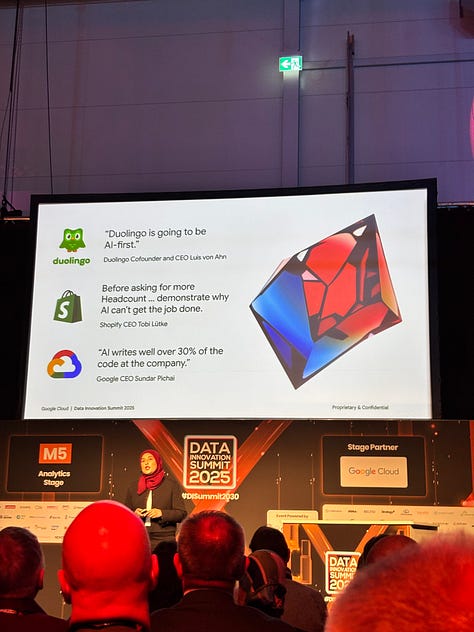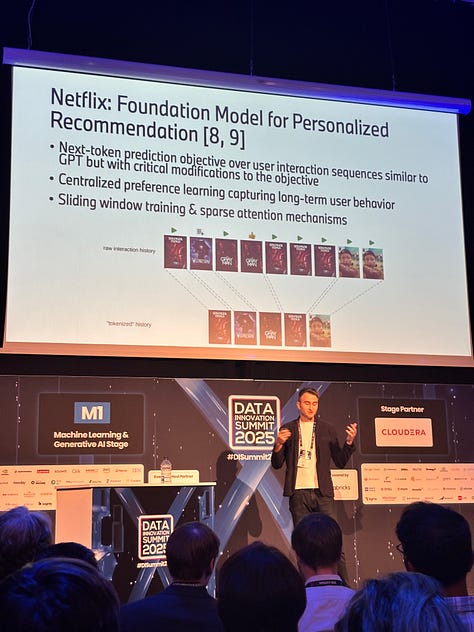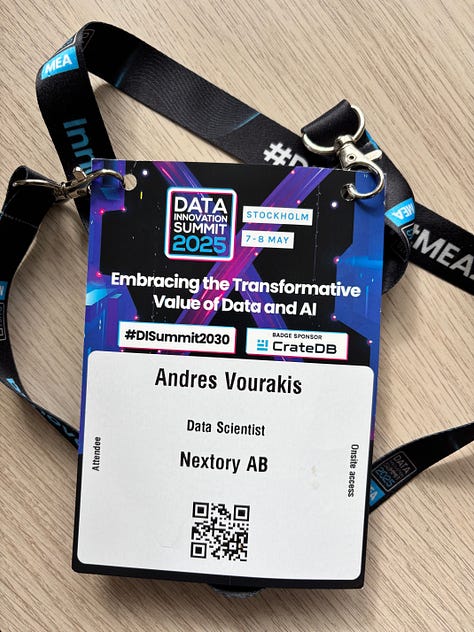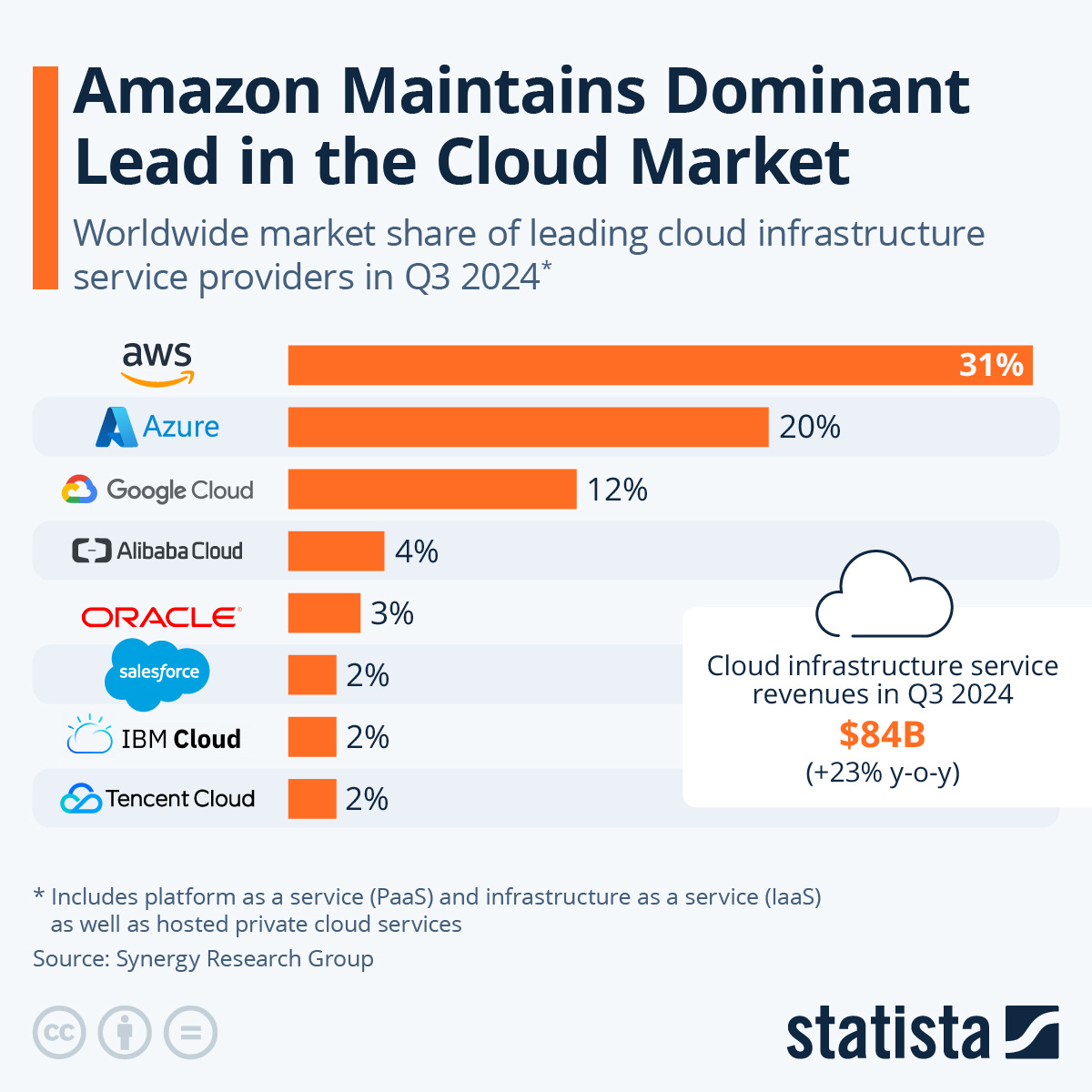How to Thrive as a Data Scientist in 2025-2026: 3 Key Skill Shifts You Need to Make
It's not too late
We're almost halfway through the year, and the list of tools data scientists now have available to improve and automate their day-to-day work keeps growing.
It’s honestly overwhelming.
Just a few days ago, I was at the Data Innovation Summit 2025 in Stockholm, Sweden, networking, learning about LLMs in recommender systems (my favorite talk btw), and all the new shiny AI tools now available:



And although the new technology is promising…
Not enough people are talking about how the bar for data scientists is shifting.
Many of the skills that used to be nice-to-haves are quickly becoming the baseline, even for many entry-level roles.
So if you're preparing to enter the market in the next few months, or if you're someone who's already working as a data scientist but wants to stay relevant and prepare for your next role, then I highly recommend you consider these three key skill shifts.
1. Get comfortable with Cloud
Most real-world data work happens in the cloud.
Guess what! You won’t be pulling local CSVs forever. In most roles, you’ll be working with cloud-based warehouses and automated pipelines.
That’s why knowing your way around the cloud is becoming expected, even at entry level (especially if you have aspirations of working in tech).
Just start by understanding what data scientists actually do in cloud-based environments:
They query large datasets using tools like BigQuery or Snowflake to support analysis and modeling.
They schedule lightweight data transformations in dbt or Airflow, often to clean, join, or prepare data for exploration.
They deploy models using managed services like Vertex AI or SageMaker, making them accessible to other systems or teams.
These aren't just engineering tasks. They’re part of the day-to-day work of a modern data scientist.
💡 I don't often recommend doing certifications as opposed to doing real projects, but this is one of those areas where it's really hard for you to learn it on your own. So if you have the time and can afford it, find certifications on how to work with cloud platforms like BigQuery or AWS. This is one of those things that will go a long way in your resume.


